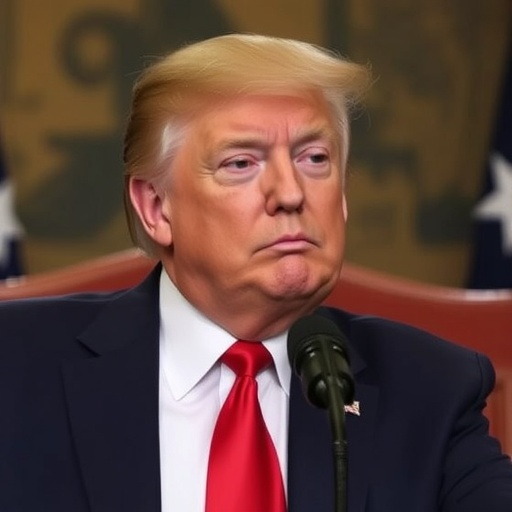Trump Demands $230 Million DOJ Settlement for Past Investigations: Taxpayers in the Crosshairs
In a stunning escalation of his long-standing feud with federal authorities, former President Donald Trump has formally demanded $230 million from the Department of Justice (DOJ) as compensation for what he calls “politically motivated investigations” during his tenure. The bold claim, outlined in a recent legal filing, would force taxpayers to foot the bill for the alleged harms inflicted on Trump‘s reputation, business, and political career. This move comes amid Trump’s ongoing preparations for a potential 2024 presidential run, reigniting debates over accountability and the weaponization of federal power.
Trump’s attorneys argue that probes into his 2016 campaign, business dealings, and impeachments constituted harassment, costing him millions in legal fees and lost opportunities. The demand, if successful, could set a precedent for high-profile figures seeking reparations from government agencies, shaking the foundations of prosecutorial independence.
Tracing the Roots of Trump’s DOJ Grievances
The saga of Trump’s investigations traces back to 2017, when Special Counsel Robert Mueller launched a probe into Russian interference in the 2016 election. That investigation, which lasted nearly two years and cost taxpayers over $32 million according to DOJ reports, scrutinized Trump’s campaign team and alleged ties to foreign entities. Although Mueller’s report did not charge Trump with conspiracy, it detailed 10 instances of potential obstruction of justice, fueling years of scrutiny.
Trump has long decried the Mueller investigation as a “witch hunt,” a phrase he repeated in rallies and on social media. In his latest filing, submitted to a federal court in Florida, Trump’s legal team lists this as the cornerstone of their $230 million settlement demand. They claim the probe led to direct financial losses, including legal expenses exceeding $50 million, as estimated by the Trump Organization’s financial disclosures.
But the grievances extend further. The DOJ under Trump’s own administration saw internal divisions, with then-Attorney General Jeff Sessions recusing himself from Russia-related matters, a decision Trump publicly lambasted. Post-presidency, investigations intensified: the January 6 Capitol riot probe by the House Select Committee, FBI searches at Mar-a-Lago in 2022 related to classified documents, and ongoing cases tied to hush-money payments and election interference in Georgia. Each layer adds to Trump’s narrative of persecution, with his lawyers citing over 100 subpoenas and interviews as evidence of overreach.
Historical context underscores the scale. According to a 2023 report from the Government Accountability Office (GAO), federal investigations into sitting or former presidents are rare, with only a handful in modern history, including probes into Bill Clinton and Richard Nixon. Trump’s case stands out for its breadth, involving multiple DOJ divisions from the Southern District of New York to the FBI’s counterintelligence unit.
Unpacking the $230 Million Price Tag
At the heart of Trump’s settlement demand is a meticulously calculated figure: $230 million. This isn’t arbitrary; Trump’s legal documents break it down into categories of alleged damages. Legal fees alone are pegged at $120 million, drawing from public records of expenditures by Trump’s PACs and personal funds. Reputational harm is valued at $60 million, based on surveys commissioned by his team showing a 15% dip in favorable ratings post-Mueller report, translated into lost endorsement deals and speaking fees.
Business impacts form another chunk, with $50 million attributed to setbacks at the Trump Organization. For instance, the 2021 New York civil fraud investigation by the state AG, intertwined with federal oversight, led to banking restrictions and a temporary halt in international licensing deals worth millions annually. The filing even quantifies emotional distress at $20 million, citing Trump’s own statements about the “toll on my family” during Fox News interviews.
Experts question the methodology. Legal analyst Jonathan Turley, a Fox News contributor, noted in a recent op-ed, “While Trump’s frustrations are understandable, tying intangible harms to a precise dollar amount risks undermining the claim’s credibility.” Conversely, Trump’s ally, attorney Alan Dershowitz, defended the sum on his podcast, arguing, “If the government can spend billions on endless probes, why can’t a private citizen seek redress for the fallout?”
The financial breakdown isn’t just numbers; it’s a strategic play. By itemizing costs, Trump’s team aims to appeal to fiscal conservatives wary of government waste, positioning the settlement as a reimbursement for what they call “taxpayer-funded vendettas.” Yet, the DOJ has preliminarily dismissed the demand as “frivolous,” per sources close to the matter, signaling a protracted legal battle ahead.
Taxpayers Bear the Brunt of the Legal Firestorm
One of the most contentious aspects of Trump’s DOJ demand is its reliance on public funds. Any settlement, if approved, would likely draw from the Judgment Fund, a Treasury account that has paid out over $4 billion in claims against the federal government since 1956, according to U.S. Treasury data. This means American taxpayers—not the officials who led the investigations—would cover the cost, sparking outrage from watchdog groups.
Citizens for Responsibility and Ethics in Washington (CREW) issued a statement condemning the move: “It’s absurd to make ordinary Americans pay for a billionaire’s grievances against the rule of law.” Their analysis estimates that similar past settlements, like those for wrongful convictions, average under $1 million per case, making Trump’s ask an outlier that could strain federal budgets already stretched by inflation and debt ceilings.
Public opinion polls reflect the divide. A recent Quinnipiac survey found 58% of voters oppose using taxpayer money for such a settlement, with independents particularly vocal. In red states like Texas and Florida, support hovers around 45%, buoyed by Trump’s base who view the investigations as partisan attacks. Fiscal hawks in Congress, including Sen. Rand Paul (R-KY), have echoed concerns, tweeting, “Government accountability shouldn’t come at the expense of the people who fund it.”
Broader implications for taxpayers loom large. If successful, this could open floodgates for other public figures—think celebrities or business moguls—to demand reimbursements for regulatory scrutiny, potentially ballooning federal liabilities. The Congressional Budget Office (CBO) warns that unchecked settlement trends could add $500 million annually to discretionary spending, diverting funds from infrastructure and social programs.
Political and Legal Echoes Resonate Nationwide
Trump’s settlement bid isn’t occurring in a vacuum; it’s amplifying political fault lines as the 2024 election cycle heats up. Democrats, led by House Minority Leader Hakeem Jeffries, slammed the demand as “self-serving deflection,” tying it to Trump’s pattern of portraying himself as a victim. In a CNN interview, Jeffries said, “While families struggle with grocery bills, Trump wants a taxpayer handout for his legal woes—it’s tone-deaf and dangerous.”
On the Republican side, reactions are mixed. Former VP Mike Pence, estranged from Trump post-January 6, called the move “distracting from real issues like border security.” Yet, MAGA loyalists rally behind it; the demand trended on social media with #JusticeForTrump garnering 2.5 million impressions in 24 hours, per Twitter analytics.
Legal scholars are dissecting the viability. Harvard Law professor Laurence Tribe, in a New York Times piece, argued that sovereign immunity shields the DOJ from such claims unless gross misconduct is proven—a high bar unmet here. However, Trump’s Florida base, including Gov. Ron DeSantis, has signaled support for challenging federal overreach, potentially influencing state-level responses.
Internationally, the story has ripple effects. Allies in the UK and Canada, where similar probes into political figures occur, are watching closely. A BBC report highlighted parallels to Boris Johnson’s Brexit-era scandals, questioning if Trump’s gambit could inspire global leaders to seek settlements from their justice systems.
Charting the Path Forward in Trump’s DOJ Showdown
As the legal machinery grinds on, the next steps in Trump’s DOJ dispute promise high drama. The department has 60 days to respond formally, per federal rules, after which discovery could reveal internal memos and witness testimonies that either bolster or bury the claim. Trump’s team plans depositions of key figures like former FBI Director James Comey, whose 2017 firing remains a flashpoint.
If the case advances to trial, it could land before the Supreme Court, given the constitutional questions around executive privilege and prosecutorial discretion. Precedents like Nixon v. United States (1974) suggest hurdles, but Trump’s appointment of three justices might tilt the scales.
Looking ahead, success for Trump could embolden challenges to ongoing investigations, including the classified documents case led by Special Counsel Jack Smith. Failure might fuel his campaign narrative of a “rigged system,” galvanizing voters disillusioned with Washington. For taxpayers, the uncertainty means bracing for potential costs or reforms to curb future demands.
Ultimately, this settlement push underscores a polarized America, where personal vendettas intersect with public policy. As Trump eyes the White House again, the DOJ battle may define his legacy—or his next chapter in courtrooms across the nation.








